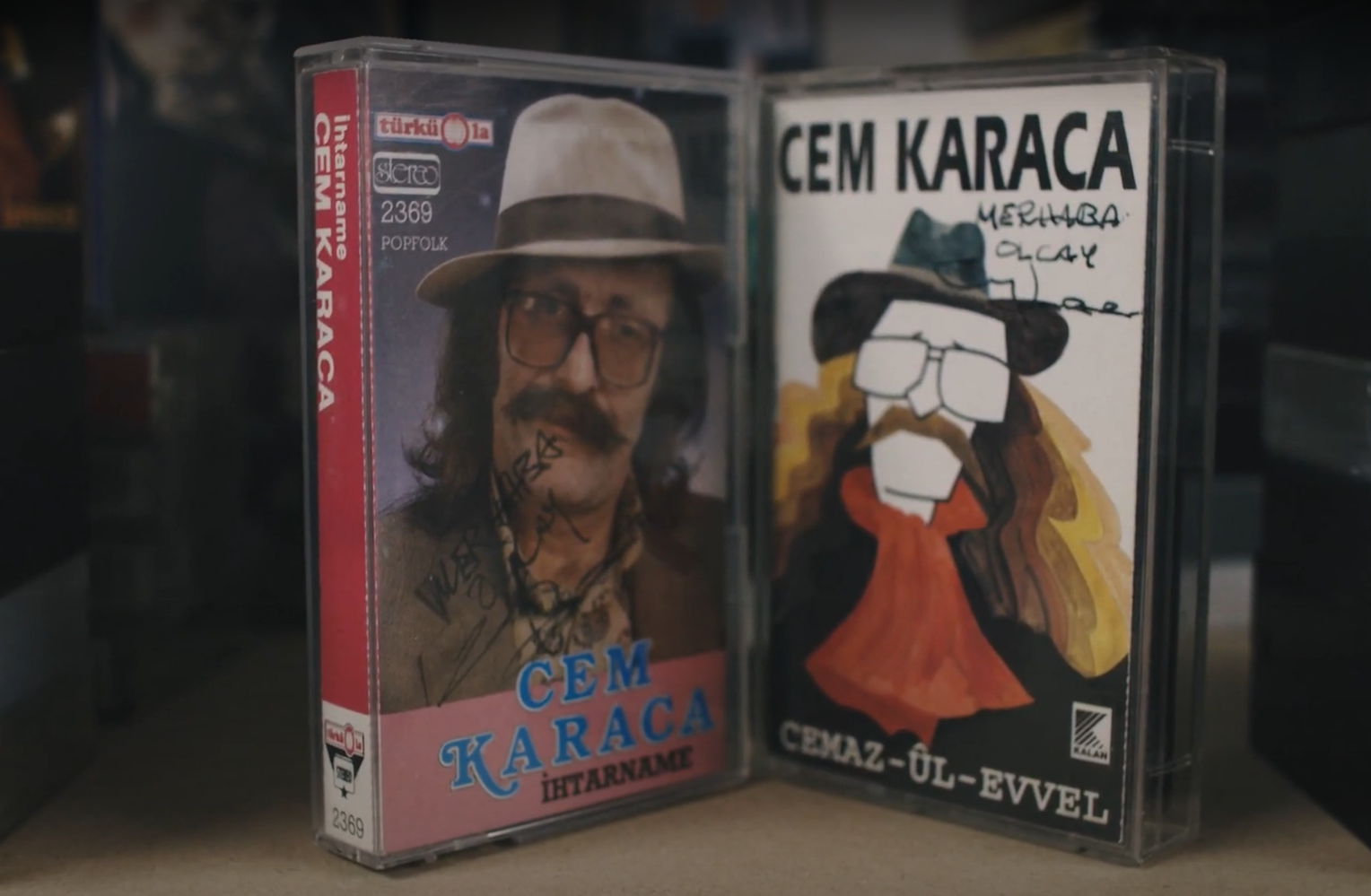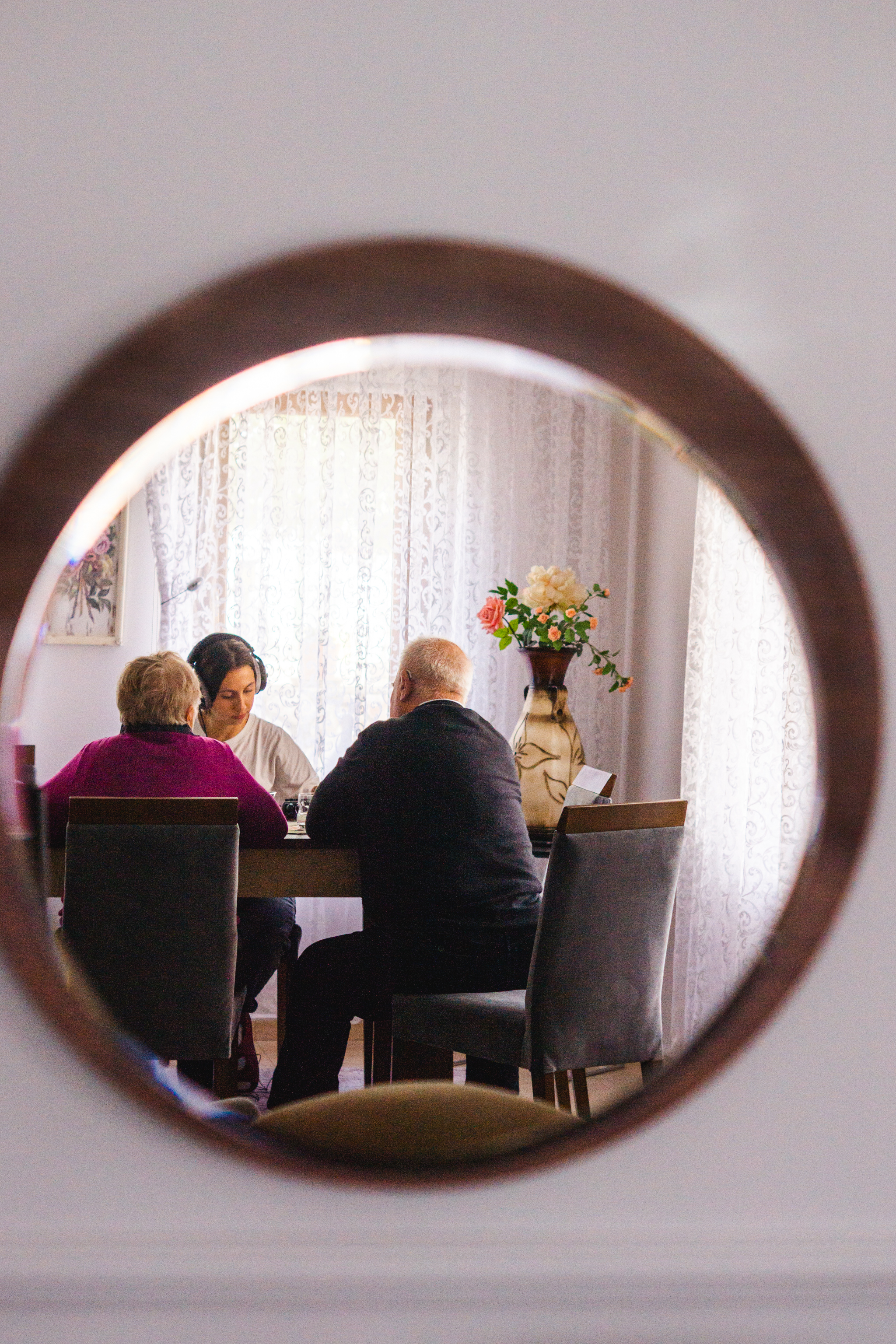en
- de
- en
STARS OF THE 1990S AND TODAY
The recruitment agreement concluded between Turkey and West Germany in 1961 has brought with it a multi-faceted musical history. While the music stars of the first generation of guest workers were hardly known in the majority society, Turkish-German musicians such as Tarkan, Elif and Eko Fresh have climbed to the top of the German charts since the 1990s.
The preoccupation with one's own identity is becoming increasingly important in many migrant biographies and is reflected in many songs. At the same time, it can be observed that the musicians of the younger generation increasingly choose the German language to express their thoughts and feelings.
ELIF - A BORDER CROSSER BETWEEN TWO WORLDS
Elif (Demirezer) processes her thoughts about inner conflict in her songs. Born in 1992 in Berlin Moabit, the singer wrote her own songs in her teens and came second in the casting show "Popstars" at the age of 16. She subsequently released several German-language albums. Looking back, she remarked in a Spiegel interview on 03.09.2020: "I pushed my Turkish side away for a long time. I was looking for identity: Who am I now? Am I Turkish, am I German? I went to the other extreme, and then my music also sounded German."
AN END TO THIS DOUBLE LIFE!
In her ballad "Doppelleben" (Double Life), she addresses her strained relationship with her family and the balancing act between individual freedom and family pressure: "I want to be able to tell you everything so that you can see and understand who I am. I want to be able to ask you everything so that I know what else is going on and where." There are also elements of traditional sounds from Turkey in her music, as well as individual Turkish passages that give the lyrics more individuality and ensure direct address to her family and surroundings.
EKO FESH - THE KING OF GERMANY
Eko Fresh (Ekrem Bora), born in Cologne in 1983 to Turkish-speaking parents, achieved his breakthrough throughout Germany in the 2000s, especially with his rap single "König von Deutschland" (King of Germany). Over the years, his songs have become increasingly socio-political: In his songs, he campaigns against discrimination and racism, among other things, and, like Elif, sings about the torn identity of many German-Turks when he writes: "Because no matter how much talent rests in me, I'm mainly booked when they're looking for a foreigner. (...) No matter how much I change, I always remain this crappy foreigner."
WHO LIKES TO SEE THEIR NEIGHBOUR FAIL?
In addition, he addresses the problems of guest workers in his songs: In 2012, for example, he released the song "Der Gastarbeiter" (The Guest Worker), in which he tells of the life of his Turkish grandfather, who came to Germany as a guest worker, and calls for understanding.
"We love Germany from the heart like crazy, but unfortunately it doesn't love us back every time. Who likes to see their neighbour fail, unless they are guest workers."
TARKAN - POP STAR WITH DANCE BEATS
Born in 1972 in Rhineland-Palatinate, pop star Tarkan went in a completely different musical direction than Eko Fresh and Elif. He spent his childhood there as the son of Turkish guest workers until his family returned to Turkey in 1986. With his rhythmic pop songs, he made it to great international acclaim in the 90s and went down in Turkish music history.
"Kiss Kiss"
In 1998, his album "Tarkan" was released by the major Dutch-German music label Polygram and gave him his big international breakthrough. His single "Şımarık" (literally: spoiled) - also known as "Kiss Kiss" because of the kissing sound at the end of the chorus - became one of the most successful Turkish-language pop songs worldwide and was also played up and down in German clubs. In Germany, the single stayed in the charts for 20 weeks and made it to number 6, in many European countries it even reached the top 5. This was the first time that the majority society in Germany came into contact with Turkish-language music via the charts.
AZIZA A. - THE FIRST WOMAN IN THE GERMAN-TURKISH RAP BUSINESS
Aziza A., born 1971 in Berlin, is a Berlin rapper, actress and presenter. She is the first female rapper of Turkish origin in Germany. She sings in both German and Turkish. Aziza A. combines traditional Turkish instruments like the saz with pop music and rap and shows the potential of transcultural music. This makes her one of the early stars of Turkish hip-hop in Germany. In the song "Es ist Zeit" (It's Time), she sings ironically about the prejudices and clichés she encountered as the daughter of Turkish immigrants, some of which she still encounters today.
DJ İPEK - BRIDGE BUILDER AT THE TURNTABLE
Born in 1972, İpek İpekçioğlu is an internationally known DJ, music producer, author and activist. She has been one of the defining figures of the Berlin club scene since the mid-1990s. Her distinctive musical style is a hybrid sound mix of techno and electro with Turkish, Kurdish, Indian to Caribbean rhythms. With this, she broke the cliché that you can only dance to western pop music in clubs.
HOME ALMANYA
DJ İpek's style of music is called "Berlin Ethno-House". She spins at major events, clubs and festivals worldwide from New York to Beijing and won the World Beat DJ competition in London in 2005.
Listen to DJ İpek's portrait from the series "Heimat Almanya" by Deutsche Welle.
ERCAN DEMIREL - IN SEARCH OF LOST PEARLS
Ercan Demirel is the founder of Ironhand Records, a small independent label from Duisburg whose aim is to re-release forgotten music by Turkish-speaking guest workers and their descendants. So he brought out records from past decades mixed with newly arranged traditional Turkish songs. It is timeless music that originated in the midst of German society but was hardly noticed by the general public for decades.
Here you can see an excerpt from the short film "Sounds from the Soul" by Mirza Odabaşı, in which he talks about the arduous search for forgotten voices of German-Turkish music.
AND WHAT KIND OF MUSIC DO YOU LISTEN TO?
YUNUS-EMRE GÜNDOĞDU - A CHILDHOOD IN BERLIN-KREUZBERG
Yunus-Emre Gündoğdu was born in 1992 in Berlin-Neukölln. His family came to Berlin in 1968 as part of the recruitment agreement and lived at the Schlesisches Tor on Cuvrystraße near the Berlin Wall. In 1972, they moved to Schöneberg as one of the first Turkish families. There he lived with his parents, uncle and grandmother in a shared 2.5-room flat. Yunus-Emre Gündoğdu studied English and political science to become a teacher and now works as an anti-violence and skills trainer at a support organisation in Berlin-Kreuzberg.
MORE STORIES ABOUT GURBET ŞARKILARI - SONGS FROM A FOREIGN LAND
BETWEEN RACISM AND FEAR OF RELEGATION - THE NEW TURKS ARE COMING!
The dilemma of being caught between two supposedly opposing cultural identities becomes more and more the subject of Gurbet Şarkıları (Songs from a foreign land) in the 80s.
FROM FEATHER BEDS TO STRAW - THE LONGING BEGINS
The first guest workers from Turkey come to Germany and a longing journey begins.
Podcasts as a place of remembrance
Funded by KULTUR.GEMEINSCHAFTEN, "Erinnerungenschaften - der Podcast für türkisch-deutsches Erinnern" preserves post-migrant voices and allows people to speak who have experienced and shaped our common history.







